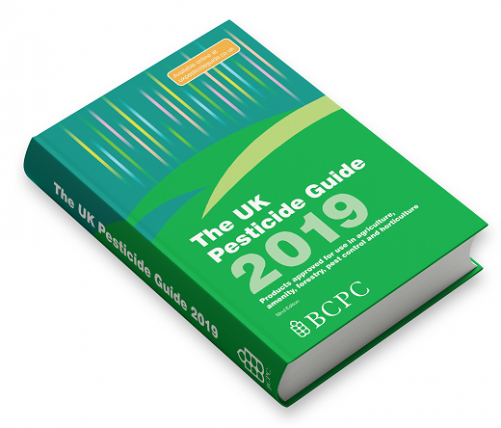Chemical Storage for Farmers – the simple guide
Getting the facts on correctly and legally storing chemicals on your farm can be a confusing and frustrating exercise. Some information sources offering conflicting advice and Government guidelines can lack the clarity we need to make important decisions about storing and using chemicals on farms.
We have created this resource to try and bring some clarity to the facts about how chemicals should be stored on farms. If you find this resource useful please feel free to link to it. Occasionally guidance and the advice we use to maintain this resource for farmers might change, so please bookmark this page and return for updates.
The British Crop Protection Council (BCPC) guide
We recommend you buy “The UK Pesticide Guide” which was prepared by The British Crop Protection Council (BCPC). The BCPC was established in 1967 and is a registered charity and promotes the science and practice sustainable crop production.
What type of chemicals are covered by this guidance?
When we discuss the chemicals that are typically stored on farms we are broadly covering the following types of chemicals:
- Herbicides
- Fungicides
- Insecticides
- Pesticides
- Acaricides
- Algicides
- LumbricidesM
- Molluscicides
- Nematicides
- Rodenticides
- Straw shorteners
- Sprout inhibitors
- Other plant protection products
This list is not conclusive and should not be referred to as a complete list of farming chemicals that covered by legislation.
Source: The UK Pesticide Guide 2019 (UKPG)
Always read the label on chemical containers
Before using any chemical for your business, you should read the label carefully and comply strictly with the instructions.
Source: The UK Pesticide Guide 2019 (UKPG)
Read the official HSE guidance
The Heath & Safety Executive (HSE) have prepared a “Guidance for storing chemical safely for farmers and other professional users”. This guide was last updated in 2012.
The Voluntary Initiative
The Voluntary Initiative is a programme of measures, agreed by the crop protection industry and related organisations with the UK Government.
The Voluntary Initiative have prepared a series of ‘Environmental Information Sheets’ (EIS) for all marketed professional products. The EIS supplement information to the product label. Their purpose is to offer standardised user-friendly information to advisers, farmers and growers.
Get the Environmental Information sheets….
Catchment-Sensitive Farming
Catchment-sensitive farming (CSF) is the Government’s response to climate change and the European water directive. Rainfall events are likely to become heavier, with a greater risk of soil, nutrients and pesticides ending up in the waterways.
Pesticide Legislation
Pesticide Legislation covers anyone that advertises, sells, supplies, stores or uses pesticide. Such parties are bound by this legislation, including those who use pesticides in their own homes, gardens or allotments.
There is a list of the major legal directives below. Click the links for more information.
- EU – Regulation 1107/2009
- EU – Regulation 1107/2009 (HSE link)
- EU – The Water Framework Directive
- EU – The Water Framework Directive (HSE link)
- EU – The Water Framework Directive (UK Government link)
- Classification, labelling and packaging (CLP) Regulation
- The Food and Environment Protection Act 1986 – (FEPA)
- Dangerous Preparations Directive (1999/45/EC)
- The Review Regulation of the EU Biocides Regulation
- Control of Substances Hazardous to Health Regulations 1988 (COSHH)
- Biocidal Products Regulations
Certificates of Competence
BASIS offer an independent registration scheme for the pesticide industry. BASIS is an independent standards setting and auditing organisation for the pesticide, fertiliser and allied industries.
More information…
NPTC run a spray operator certification program. City & Guilds Land Based Services (formerly NPTC) is the UK’s largest awarding body in the land-based sector – encompassing agriculture, horticulture, forestry, animal care, conservation, machinery and more.
More information…
Maximum Residue Levels
Maximum Residue levels denotes where the food chain has been affected by residues of pesticide.
Find out more direct from the HSE…
REACH
Registration, evaluation, authorisation and restriction of chemicals (REACH) is a European regulation that came into force in June 2007.
Get the REACH fact sheet…
Who approves the uses of specific pesticides?
Only officially approved pesticides can be marketed and used in the UK. Approvals are granted by the UK Government. There are 2 levels of product approval (authorisation for use; limited approval for research and development). Product approvals may be reviewed, amended, suspended or revoked at any time. It is recommended that you check the CRD and HSE websites for up to date information.
More information…
ALWAYS read the label before use
Using any product in a manner that is inconsistent with the advice or date printed on the product label may be an offence.
Read the government guidance…
Using herbicides near a watercourse
The UK Government provides a form to complete if you plan to use herbicides to control weeds in water or on the banks next to a waterbody or watercourse.
Find out more direct from the Government…
The Environmental Protection Act 1990
Under the terms outlined in The Environmental Protection Act 1990 (as amended) it is an offence to treat, keep or dispose of ‘controlled waste’ in a way likely to pollute the environment or harm people.
Read the legislation…
It is also an offence to keep, treat or dispose of ‘controlled waste’ without a waste-management licence, unless the activity in question is ‘exempt’ under the Waste Management Licensing Regulations 1994. Under the act, people who produce waste must make sure that it is passed only to an authorised person who can transport, recycle or dispose of it safely.
HSE Prosecutions
HSE can and will prosecute if you are not storing and using chemicals in your work place within the Code of practice.
More information…
ALWAYS READ THE LABEL BEFORE USE
About Jane Billing
Jane Billing has over 30 years’ experience in shipping container supply. During that time, Jane has acquired a very broad knowledge of the whole shipping container industry. From construction and shipping to adaptation and conversions, if you have a question about any aspect of the shipping container industry, Jane will likely have the answer for you. After many years working for some of the biggest names in the shipping container industry, Jane set up her own company, Billie Box Ltd, in 2012. Since launching in 2012, Billie Box Ltd has sold well over 1500 new and used containers.



